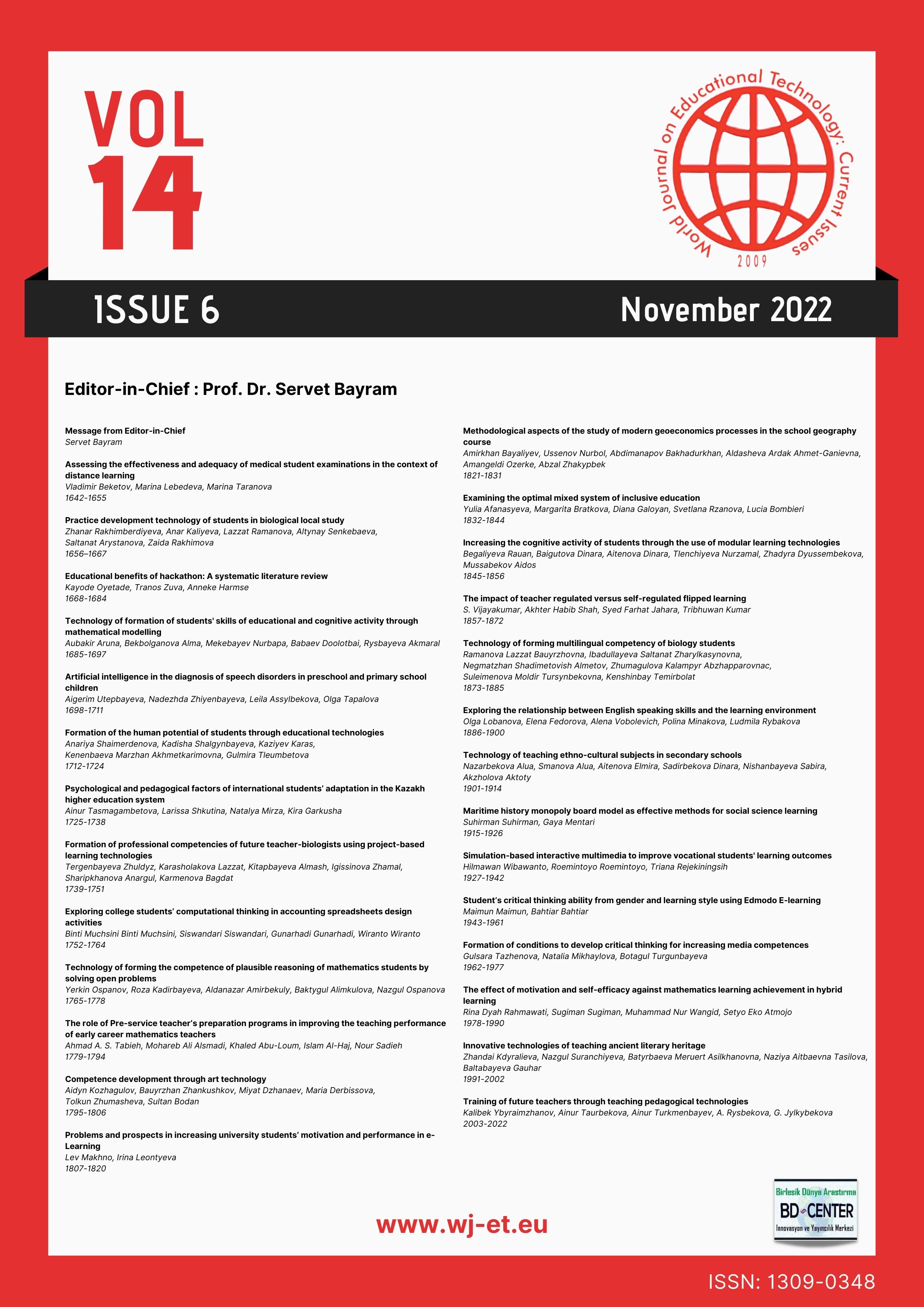Competence development through art technology
Main Article Content
Abstract
The purpose of this research; is to evaluate the competence development process through art technology through the eyes of students studying in the visual arts and drawing department. The study group of the research consists of 40 visual arts and drawing department students studying at various universities in Kazakhstan. Research data were collected by semi-structured interview technique. The descriptive analysis technique was used in the analysis of the interviews with the students who constitute the sample group of the research. As a result of the research; it has been determined that the majority of visual arts and drawing students have moderate technological competencies. The majority of visual arts and painting students stated that they found the education opportunities related to art technology at a moderate level in the education they received at the university. The majority of the students participating in the research stated that technology integration into art education is very necessary. The vast majority of visual arts and drawing students stated that it is possible to gain competence through art technology.
Keywords: Art technology, competence development, student opinions;
Downloads
Article Details

This work is licensed under a Creative Commons Attribution 4.0 International License.
World Journal on Educational Technology: Current Issues is an Open Access Journal. The copyright holder is the author/s. Licensee Birlesik Dunya Yenilik Arastirma ve Yayincilik Merkezi, North Nicosia, Cyprus. All articles can be downloaded free of charge. Articles published in the Journal are Open-Access articles distributed under CC-BY license [Attribution 4.0 International (CC BY 4.0)].
Birlesik Dunya Yenilik Arastirma ve Yayincilik Merkezi (BD-Center)is a gold open-access publisher. At the point of publication, all articles from our portfolio of journals are immediately and permanently accessible online free of charge. BD-Center articles are published under the CC-BY license [Attribution 4.0 International (CC BY 4.0)], which permits unrestricted use, distribution, and reproduction in any medium, provided the original authors and the source are credited.
